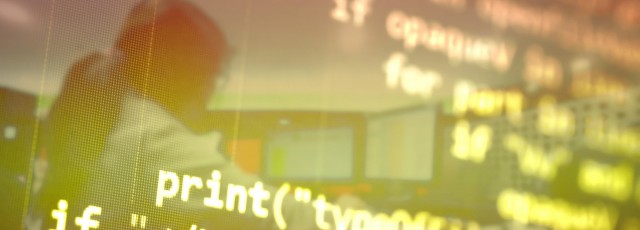18 real-life developer interview questions
Developers are the backbone of the tech industry, responsible for creating, testing, and maintaining software applications that power our digital world.
These Developer interview questions are directly sourced from real hiring managers and they are ready to use.

Make sure that you are interviewing the best developer candidates. Sign up for Workable’s 15-day free trial to hire better, faster.
18 good developer interview questions
- How do you organize your class modules and assets?
- What is your strategy for punctuality and following through on commitments?
- Describe the last job or project where you were faced with a new language or framework.
- How do you prevent physical and emotional burnout?
- Do you use any self-discipline techniques or applications?
- How do you organize your computer files and cloud files?
- What is your philosophy around focus and flow during work?
- Describe a B-grade programmer you’ve met. Describe a C-grade programmer. Describe why you are an A-grade programmer.
- Describe the last time you asked for feedback on your work.
- You find yourself facing a technical problem you’re not able to solve. What do you tell your client?
- You are not comfortable with a software project and need to resign. Describe the steps you would take.
- Describe the last time you realized you were wrong about something in the workplace.
- What company culture or company practices would make you feel included as a team member?
- Describe the last time someone did not understand what you were saying.
- Describe the last time you had a conflict with a team member.
- What does a transparent work culture mean to you?
- Tell me about a time you worked with coworkers to solve an issue at work.
- There’s a famous saying ‘the customer is always right’. To what extent do you believe this?
Here are 18 essential interview questions with sample answers to help you identify the best candidates for this role.
1. How do you organize your class modules and assets?
Organization in coding ensures efficient and clean work.
Sample answer
“I use a modular approach, grouping related functionalities together. Assets are stored in dedicated directories, ensuring easy access and maintenance.”
2. What is your strategy for punctuality and following through on commitments?
Commitment and punctuality are key in professional settings.
Sample answer
“I prioritize tasks, set reminders, and allocate buffer time. I believe in under-promising and over-delivering, ensuring I meet deadlines.”
3. Describe the last job or project where you were faced with a new language or framework.
Adaptability is crucial in the ever-evolving tech world.
Sample answer
“I was introduced to React in a recent project. I took online courses, practiced, and consulted peers. Initially, it was challenging, but with dedication, I completed the project successfully.”
4. How do you prevent physical and emotional burnout?
Burnout can severely impact productivity and well-being.
Sample answer
“I ensure work-life balance, take regular breaks, and engage in hobbies. I believe burnout can be linked to overcommitment. My last project was a web application, and I paced myself, leading to its successful completion.”
5. Do you use any self-discipline techniques or applications?
Self-discipline ensures focus and productivity.
Sample answer
“I use the Pomodoro Technique for work intervals. Apps like F.lux reduce eye strain, and White Noise helps me concentrate.”
6. How do you organize your computer files and cloud files?
Organization reflects a developer’s work ethic.
Sample answer
“I categorize files by project and type. My physical space is minimalistic, mirroring my digital organization philosophy.”
7. What is your philosophy around focus and flow during work?
Focus and flow are essential for productivity.
Sample answer
“I believe in deep work. I eliminate distractions, prioritize tasks, and allocate dedicated time blocks to ensure I stay in the zone.”
8. Describe a B-grade programmer you’ve met. Describe a C-grade programmer. Describe why you are an A-grade programmer.
Understanding competency levels is essential.
Sample answer
“A B-grade programmer I knew often took shortcuts. A C-grade programmer lacked basic problem-solving skills. I consider myself A-grade because I continuously update my skills, ensure clean code, and actively seek feedback.”
9. Describe the last time you asked for feedback on your work.
Feedback is essential for growth.
Sample answer
“I recently asked a senior developer to review my code. They suggested some optimizations, which I incorporated in my next project.”
10. You find yourself facing a technical problem you’re not able to solve. What do you tell your client?
Honesty and professionalism are key.
Sample answer
“I’d inform the client about the challenge, assure them I’m exploring all avenues, and request a slight extension if necessary.”
11. You are not comfortable with a software project and need to resign. Describe the steps you would take.
Professionalism is crucial when exiting a project.
Sample answer
“I’d communicate my concerns with the client, provide a detailed handover, and if possible, recommend alternatives or solutions.”
12. Describe the last time you realized you were wrong about something in the workplace.
Admitting mistakes is a sign of maturity.
Sample answer
“I once misinterpreted a project requirement. I acknowledged the error, rectified it, and ensured better communication in the future.”
13. What company culture or company practices would make you feel included as a team member?
Inclusivity fosters a positive work environment.
Sample answer:
“A culture that values diversity, promotes open communication, and encourages continuous learning would make me feel included.”
14. Describe the last time someone did not understand what you were saying.
Effective communication is crucial.
Sample answer: “I was explaining a complex algorithm, and a colleague seemed lost. I simplified my explanation and used analogies, which helped.”
15. Describe the last time you had a conflict with a team member.
Conflict resolution is vital.
Sample answer
“A team member and I had differing views on a project. We discussed our perspectives, weighed pros and cons, and reached a consensus.”
16. What does a transparent work culture mean to you?
Transparency fosters trust.
Sample answer
“It means open communication, sharing both successes and failures, and ensuring everyone understands the company’s vision and goals.”
17. Tell me about a time you worked with coworkers to solve an issue at work.
Collaboration often leads to better solutions.
Sample answer
“Our application had a persistent bug. By collaborating with the team, we brainstormed, identified the root cause, and efficiently resolved the issue.”
18. There’s a famous saying ‘the customer is always right’. To what extent do you believe this?
Balancing customer feedback with expertise is essential.
Sample answer:
“While it’s vital to value customer feedback, it’s equally important to evaluate it critically. I believe in understanding the customer’s perspective but also leveraging expertise to guide them.”
What does a good Developer candidate look like?
A top-notch Developer candidate possesses not only technical prowess but also strong problem-solving skills, effective communication abilities, a continuous learning mindset, and the capability to work collaboratively. They should be adaptable, receptive to feedback, and have a meticulous attention to detail.
Red flags
Watch out for candidates who are resistant to feedback, lack problem-solving skills, or are unfamiliar with the latest industry trends and tools. A reluctance to collaborate, an inability to articulate complex concepts simply, or a history of missing deadlines can also be concerning.
